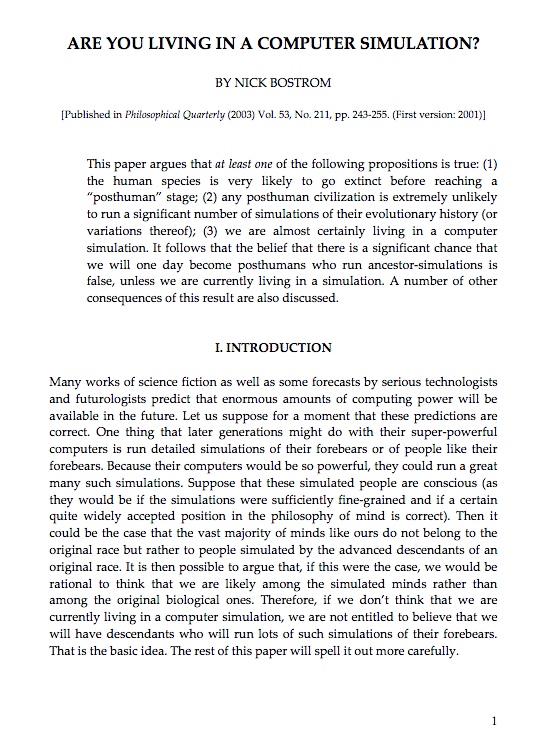What do you think?
Rate this book


18 pages, ebook
First published January 1, 2003
1. The fraction of human-level civilizations that reach a posthuman stage (that is, one capable of running high-fidelity ancestor simulations) is very close to zero.
2. The fraction of posthuman civilizations that are interested in running simulations of their evolutionary history, or variations thereof, is very close to zero.
3. The fraction of all people with our kind of experiences that are living in a simulation is very close to one.
I am in a very fortunate position. I have no teaching duties. I am supported by a staff of assistants and brilliant research fellows. There are virtually no restrictions on what I can work on. I must try very hard to be worthy of this privilege and to cast some light on matters that matter.